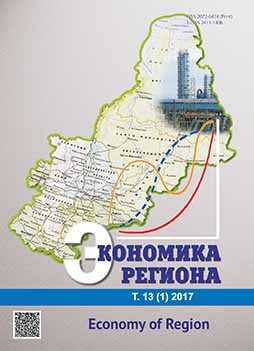Assessing the Impact of the Competency Level on the Success of Companies’ Integration
Assessing the Impact of the Competency Level on the Success of Companies’ Integration
Author(s): Marina Nikolayevna Rudenko, Rebecca HochradelSubject(s): Economy
Published by: Институт экономики Уральского отделения Российской академии наук
Keywords: competency; entrepreneurship; integration; identification; correlation; regression; the market value of assets; customer satisfaction; relationships; M&A success;
Summary/Abstract: The integration of companies is crucially important in the ongoing globalization processes. Companies must unify the material assets and optimize property. The integration of the company, incrementally, and competency development is also essential in order to expand the competitiveness of the company’s integrated structure. Identification and management of competencies are especially important for the enterprise structures, which carry out the integration processes. The level of competency development and the types of competencies may or may not be similar. The aim of this research is to specify and develop an organizational competency structure, which groups individual competencies of an organization into various segments based on their similarity. This research is relevant due to the need to systematize and streamline competencies in order to better identify them and develop a set of measures for their monitoring. The theoretical literature analysis allowed us to create a model that characterizes the assumed impact of the competencies on the successful integration of companies. Based on the data, we divided the organizational competencies into five major categories are. An empirical assessment of the impact of the competencies on the market success of the integration of enterprise structures is provided. This research indicates that the success of such integration is substantially determined by the formation and development of the competencies. The authors interviewed top managers of 225 medium and large-sized companies from all over the country were (the questionnaire was created by Rudenko M.N.) The time lag is 5 years. Thereby, the results can be used in the process of regional policy formation.
Journal: Экономика региона
- Issue Year: 13/2017
- Issue No: 1
- Page Range: 106-113
- Page Count: 8
- Language: English

